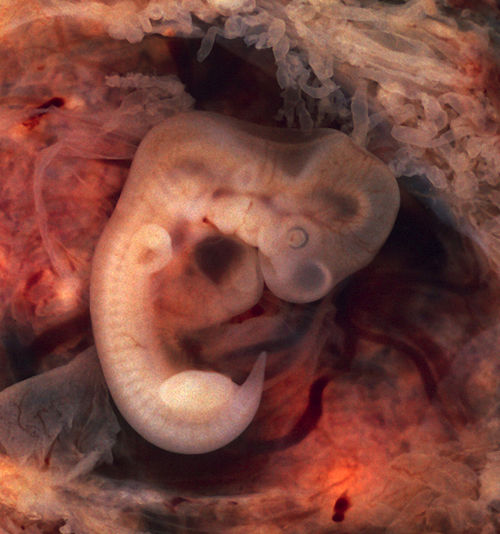Evergreenadjective
Of plants, especially trees, that do not shed their leaves seasonally.
Evergreenadjective
Continually fresh or self-renewing.
Evergreenadjective
(contracts) A clause which causes an automatic renewal of a contract unless action is taken.
Evergreenadjective
(computing) Of a document, a piece of software, or a dataset, being continually up-to-date (as opposed to being published at regular intervals and outdated in the meantime)
Evergreenadjective
(broadcasting) Suitable for transmission at any time; not urgent or time-dependent.
Evergreennoun
A tree or shrub that does not shed its leaves or needles seasonally.
Evergreennoun
A conifer tree.
Evergreennoun
(colloquial) A news story that can be published or broadcast at any time.
Evergreenverb
To extend the term of a patent beyond the normal legal limit, usually through repeated small modifications.
Evergreenverb
(banking) To set the repayment rate of a loan at or below the interest rate, so low that the principal will never be repaid.
Evergreenadjective
Remaining unwithered through the winter, or retaining unwithered leaves until the leaves of the next year are expanded, as pines cedars, hemlocks, and the like.
Evergreennoun
An evergreen plant.
Evergreennoun
Twigs and branches of evergreen plants used for decoration.
Evergreennoun
a plant having foliage that persists and remains green throughout the year
Evergreenadjective
(of plants and shrubs) bearing foliage throughout the year
Evergreen
In botany, an evergreen is a plant which has foliage that remains green and functional through more than one growing season. This also pertains to plants that retain their foliage only in warm climates, and contrasts with deciduous plants, which completely lose their foliage during the winter or dry season.
Personnoun
An individual; usually a human being.
Personnoun
A character or part, as in a play; a specific kind or manifestation of individual character, whether in real life, or in literary or dramatic representation; an assumed character.
Personnoun
(Christianity) Any one of the three hypostases of the Holy Trinity: the Father, Son, or Holy Spirit.
Personnoun
Any sentient or socially intelligent being.
Personnoun
(in a compound noun or noun phrase) Someone who likes or has an affinity for (a specified thing).
Personnoun
The physical body of a being seen as distinct from the mind, character, etc.
Personnoun
(law) Any individual or formal organization with standing before the courts.
Personnoun
(law) The human genitalia; specifically, the penis.
Personnoun
(grammar) A linguistic category used to distinguish between the speaker of an utterance and those to whom or about whom he is speaking. See grammatical person.
Personnoun
(biology) A shoot or bud of a plant; a polyp or zooid of the compound Hydrozoa, Anthozoa, etc.; also, an individual, in the narrowest sense, among the higher animals.
Personverb
To represent as a person; to personify; to impersonate.
Personverb
To man.
Personnoun
A character or part, as in a play; a specific kind or manifestation of individual character, whether in real life, or in literary or dramatic representation; an assumed character.
Personnoun
The bodily form of a human being; body; outward appearance; as, of comely person.
Personnoun
A living, self-conscious being, as distinct from an animal or a thing; a moral agent; a human being; a man, woman, or child.
Personnoun
A human being spoken of indefinitely; one; a man; as, any person present.
Personnoun
A parson; the parish priest.
Personnoun
Among Trinitarians, one of the three subdivisions of the Godhead (the Father, the Son, and the Holy Ghost); an hypostasis.
Personnoun
One of three relations or conditions (that of speaking, that of being spoken to, and that of being spoken of) pertaining to a noun or a pronoun, and thence also to the verb of which it may be the subject.
Personnoun
A shoot or bud of a plant; a polyp or zooid of the compound Hydrozoa Anthozoa, etc.; also, an individual, in the narrowest sense, among the higher animals.
Personverb
To represent as a person; to personify; to impersonate.
Personnoun
a human being;
Personnoun
a person's body (usually including their clothing);
Personnoun
a grammatical category of pronouns and verb forms;
Person
A person (plural people or persons) is a being that has certain capacities or attributes such as reason, morality, consciousness or self-consciousness, and being a part of a culturally established form of social relations such as kinship, ownership of property, or legal responsibility. The defining features of personhood and, consequently, what makes a person count as a person, differ widely among cultures and contexts.In addition to the question of personhood, of what makes a being count as a person to begin with, there are further questions about personal identity and self: both about what makes any particular person that particular person instead of another, and about what makes a person at one time the same person as they were or will be at another time despite any intervening changes.














